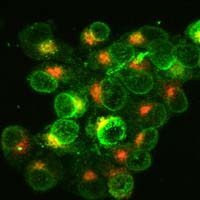Immunotherapy’s Impact on the Mesothelioma Immune System

The battle against mesothelioma has seen significant developments in recent years. Many developments are with the introduction of immunotherapy as a treatment option. This cancer, caused by asbestos exposure, has been an enduring puzzle due to its rarity and lengthy latency period.
Brazilian researchers studied the complex relationship between mesothelin and the immune system. The findings provide fresh insights into how mesothelin influences cancer aggressiveness. And it has a few implications for patient treatment decisions.
The Mesothelioma Puzzle
Mesothelioma is a tough-to-treat cancer linked to asbestos exposure. It has long challenged doctors and scientists because it is so rare and takes decades for symptoms to appear. In the last decade, a special kind of treatment called immunotherapy has been used on mesothelioma patients.
Immunotherapy combines powerful agents with special proteins to target and stop cancer cells. A new study by researchers in Brazil took a closer look at a specific target called mesothelin. They looked at its relationship with the immune system in two groups of mesothelioma patients.
Immunotherapy and Mesothelioma
To dig deeper into mesothelioma and its connection with mesothelin, scientists studied 82 patients in the first group. They examined tiny slices of tissue under microscopes to better understand how mesothelin interacts with other important markers. They also looked at how immune cells and certain fibers in the tissue played a role.
The patients in the study were mostly male, and many had been exposed to asbestos. Most had a type of mesothelioma called epithelioid. A large number had surgery, while a smaller group received chemotherapy. Many of the patients were dealing with spreading cancer as they received treatment.
The scientists discovered that low levels of mesothelin in the tumor were linked to specific traits. Traits were tissue death and less aggressive cancer. On the flip side, high levels of mesothelin were connected to the epithelioid type of cancer and lots of important immune cells and fibers.
The scientists crunched numbers to get a clearer picture. They found that patients who did not have surgery had a lower chance of survival. Additionally, patients with low mesothelin levels had a higher risk of not doing well. When the immune system was not as active, the risk went up even more.
In another group of 87 mesothelioma patients, scientists noticed something crucial. Those with low mesothelin levels and higher amounts of certain fibers usually had a more aggressive cancer.
This study brings exciting news for mesothelioma patients. Understanding how mesothelin works with the immune system can help doctors make treatment decisions for their patients. It also points to a promising new target for treatments. With more research, we may get closer to better outcomes for those dealing with a mesothelioma diagnosis.
Source
Qualiotto AN, Baldavira CM, Balancin M, Ab’Saber A, Takagaki T, Capelozzi VL. Mesothelin expression remodeled the immune-matrix tumor microenvironment predicting the risk of death in patients with malignant pleural mesothelioma. Front Immunol. 2023;14:1268927. Published 2023 Oct 12. doi:10.3389/fimmu.2023.1268927. https://www.ncbi.nlm.nih.gov/pmc/articles/PMC10601658/





